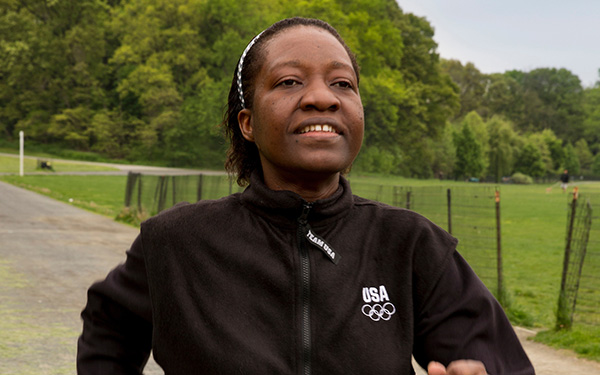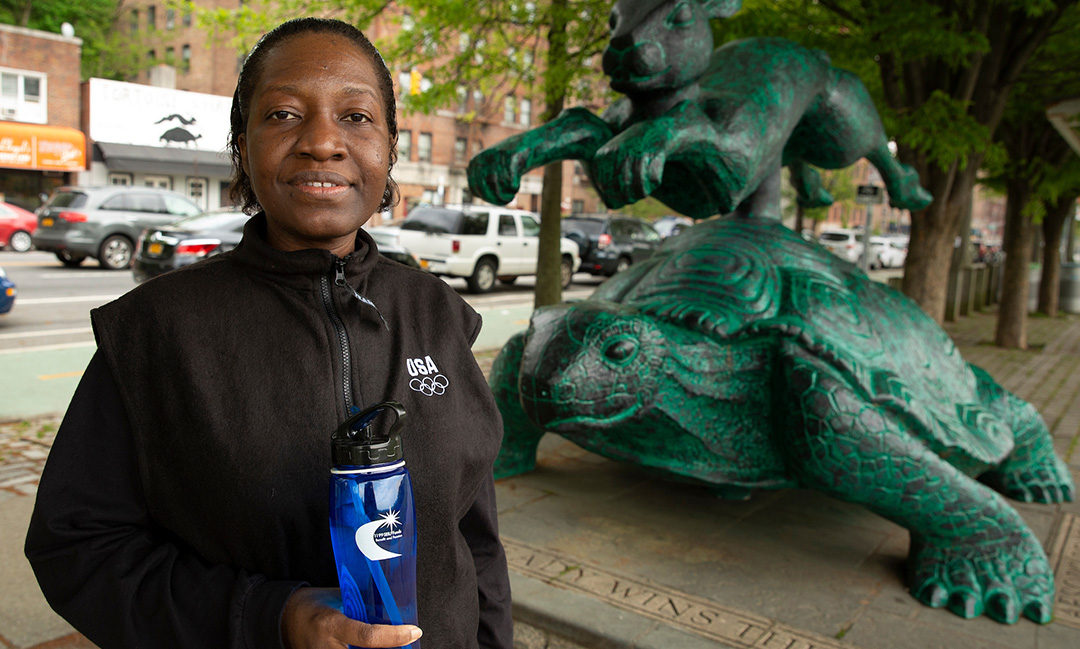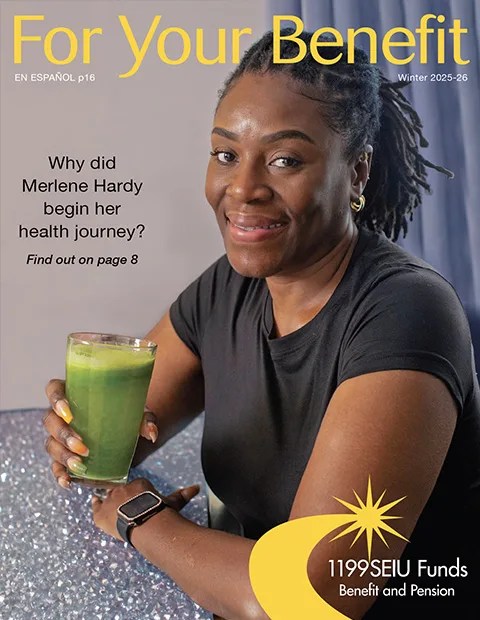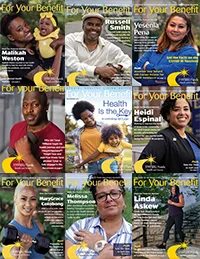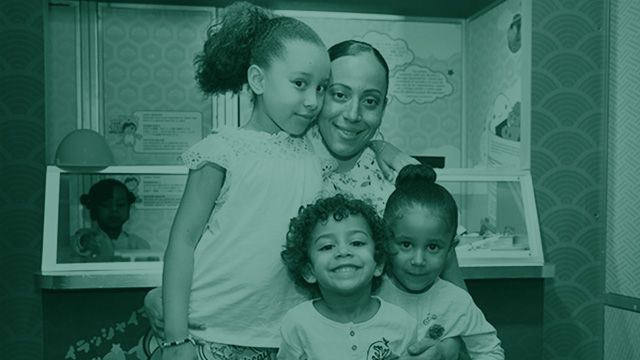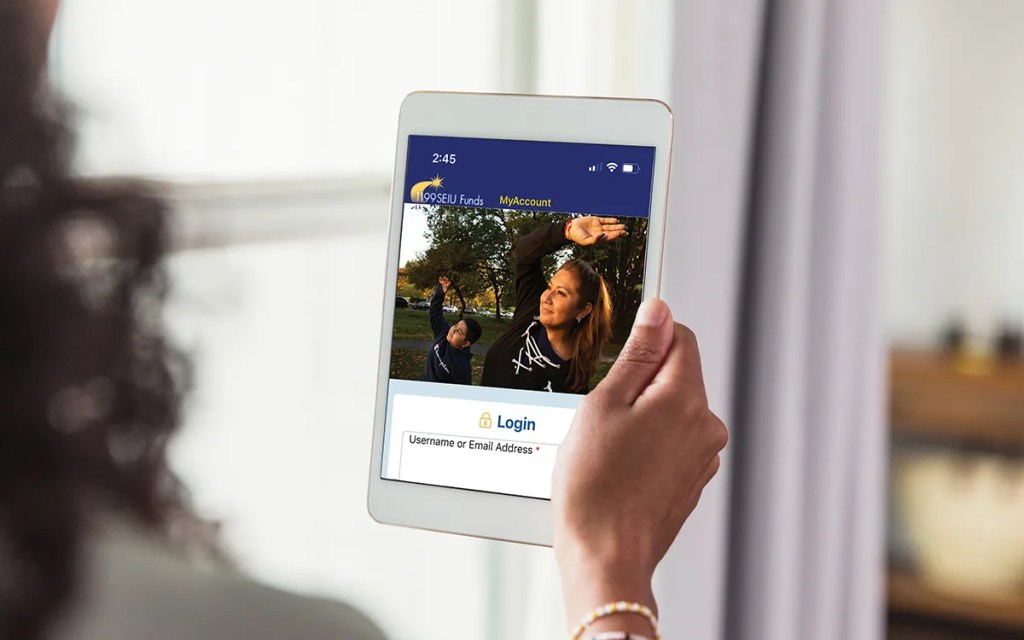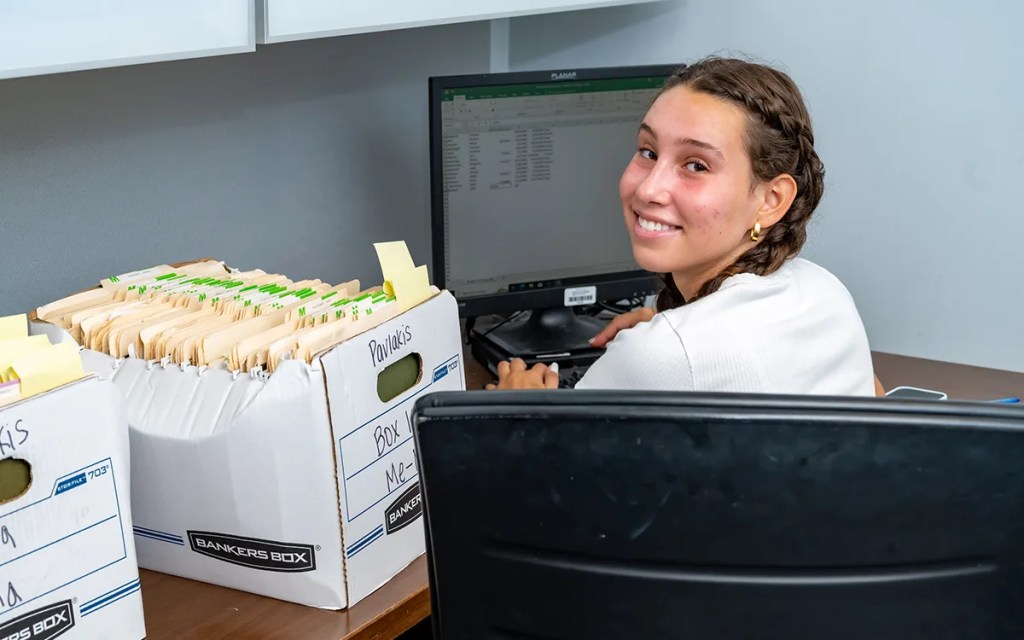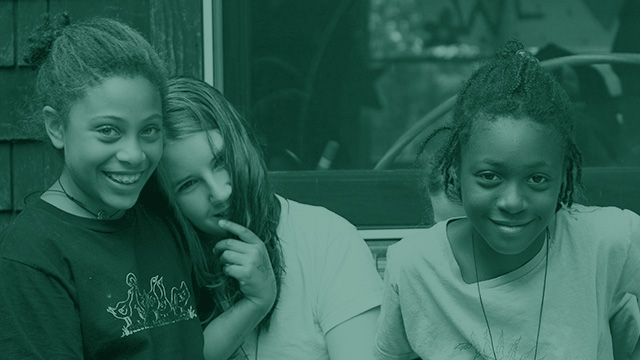
FALC Kids Take a Stand for Climate Change Awareness
The Future of America Learning Center (FALC) curriculum has frequently focused on STEAM (science, technology, engineering, art and math) learning to educate students about the environment, on both a local and global level. On September 16, FALC students put this learning into action by participating in a march to raise awareness about the growing climate crisis. After a morning assembly, more than 100 children, parents, grandparents and FALC staff, accompanied by Estela Vazquez, an Executive Vice President of 1199SEIU United Healthcare Workers East (the Union), and Rossmery Dais, Vice President of the 1199SEIU/Employer Child Care Corporation, marched from the FALC building in the Bronx, through the neighborhood and back, calling for immediate action to secure a safe and healthy future. At the end of the march, they stood in front of the FALC building chanting and singing songs that expressed their desire to see action in fighting climate change.
The following day, FALC students took their climate concerns to the United Nations (UN). There, they met with a UN Special Envoy, were given an exclusive tour and hand-delivered climate-focused artwork and banners they created themselves.
Closing out the week of advocacy, on Friday, September 20, FALC students participated in a global day of action by joining the Union in a march from Foley Square to Battery Park in Manhattan to support its Labor Solidarity with Student Mobilization for Climate Initiative. The week of activities highlighted the importance of climate change awareness and fostered solidarity on a global, multigenerational scale. “Global warming is a real issue,” said FALC parent Shirley Severe. “These are our future scientists and engineers—we need to let them know this is their world.”

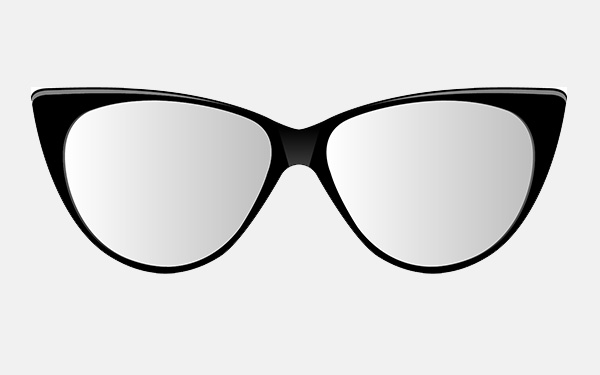
 While your Benefit Fund health coverage typically covers most services with no out-of-pocket costs to you, there are times when you may need to file a claim to be reimbursed for payments you made for a covered expense—such as a new pair of eyeglasses, bills from non-participating providers and certain secondary expenses for your family members. Now, you can submit your claim form online and upload documents through MyAccount, which means you will be reimbursed quicker. Log in to
While your Benefit Fund health coverage typically covers most services with no out-of-pocket costs to you, there are times when you may need to file a claim to be reimbursed for payments you made for a covered expense—such as a new pair of eyeglasses, bills from non-participating providers and certain secondary expenses for your family members. Now, you can submit your claim form online and upload documents through MyAccount, which means you will be reimbursed quicker. Log in to 

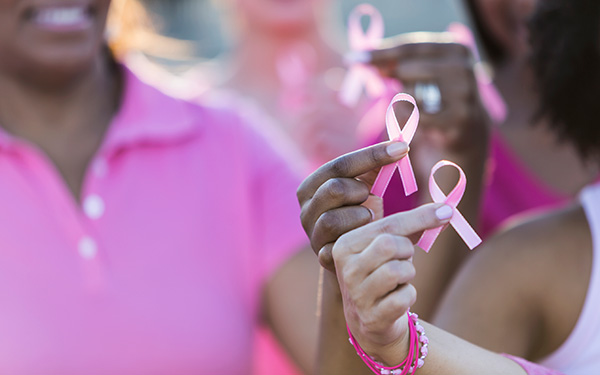
 If you are battling breast cancer, your 1199SEIU Benefit Fund is here to support you every step of the way. Your health benefits give you access to quality oncology care with many of the top cancer treatment centers in the New York metropolitan area, so you won’t have to go outside of your network for care.
If you are battling breast cancer, your 1199SEIU Benefit Fund is here to support you every step of the way. Your health benefits give you access to quality oncology care with many of the top cancer treatment centers in the New York metropolitan area, so you won’t have to go outside of your network for care.